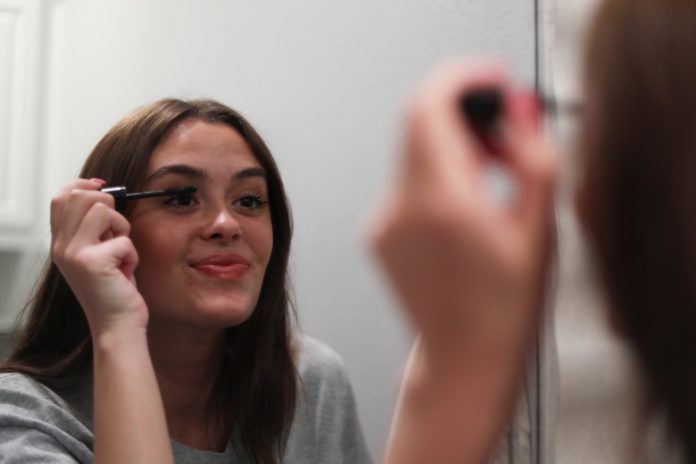
By Jillian Veldey | Social Media Editor
Now more than ever, cosmetic companies are becoming cruelty-free, meaning they don’t test on animals. With the number of companies ranging from indie to drugstore to high-end that offer cruelty-free makeup products, there are more products than ever that claim to have an ethical mind.
Phoenix junior Hailey Engels says knowing what goes into the products she puts on her face and body is very important.
“Everything I’ve bought since coming to college has been cruelty-free,” Engels said. “I think it’s really important to be aware of how your makeup is made and what it’s made with because we pay that close attention to our food, so why wouldn’t we with our makeup?”
Others, like Engels, have also experienced a paradigm shift when considering how the products they use affect others.
Lakeway junior Kassidy Timmons said she used to not give much thought to where the makeup or products she was putting on her body came from. If they worked, it worked for her. Now, however, she said she has made the switch.
“I’ve found that the products I use that are cruelty-free are just as good, if not better, than competing brands and are made without a lot of the toxins found in other products, which means it’s safer for my skin and ethically-sourced,” Timmons said.
Timmons said she now uses Glossier cloud paint, IL MAKIAGE vegan and cruelty-free foundation and IT Cosmetics eyebrow pencil.
Blue Springs Mo. senior Kyndall Robinson said her favorite place to buy cruelty-free cosmetics is ColourPop, because they are high quality and low priced. She said shopping ethically isn’t always the cheaper option, so ColourPop makes it affordable.
“I like to use their Pretty Fresh tinted moisturizer and their Pretty Fresh concealer,” Robinson said. “I love the coverage on the tinted moisturizer. It is so lightweight but still has a good amount of coverage, without looking cakey, and gives a very natural look. Both of those products are my go-to daily products and give a very good ‘no make-up’ look.”
Consistency and quality are other factors that attract consumers to which products they gravitate towards.
Henrietta junior Jacobi Reynolds said Morphe is her favorite cruelty-free brand because not only is it high quality, but she also trusts that every time she uses their products, she will like the results.
“Specifically, their eyeshadows,” Reynolds said. “They are affordable and have great pigmentation. The formula stays on throughout the day and doesn’t irritate my skin.”
Some students were surprised when they realized their favorite brands were already cruelty-free.
Houston junior Victoria Fauntleroy said she has been using her same fleet of products forever and recently found out that they are considered cruelty-free.
“I love Hourglass and Charlotte Tilbury and I think it’s cool how they don’t have to test on animals to still make a great product,” Fauntleroy said. “It just proves that there are other ways of testing that can still guarantee a great high-quality product.”
According to the U.S. Food & Drug Administration (FDA), there is no legal definition for “cruelty-free” or “not tested on animals,” so companies will often use them to promote their products, with the hopes of making them more appealing to the customer.
“Some companies may apply such claims solely to their finished cosmetic products,” the FDA said in an article. “However, these companies may rely on raw material suppliers or contract laboratories to perform any animal testing necessary to substantiate product or ingredient safety.”
To be sure which products are actually cruelty-free, there are resources available online to help narrow the search.
Timmons said there are so many great cruelty-free cosmetics out there for people to try, she hopes others will make the switch like she did.
“If people don’t want to test out a product on their skin, we shouldn’t be testing it on an animal, either,” Timmons said. “It’s inhumane.”




